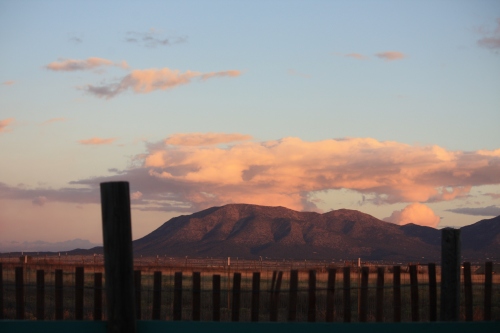I came across this on Facebook:
Wow, how gorgeous. I’ve heard the song before, and wondered from time to time what it really meant. Folk songs all too often have a much deeper meaning than we realize. An Internet search brought me to Wikipedia, a good starting place, with a wealth of possibilities:
***There are many theories about the meaning of the song, most of which are connected to the Jacobite Uprising of 1745. One interpretation based on the lyrics is that the song is sung by the lover of a captured Jacobite rebel set to be executed in London following a show trial. The heads of the executed rebels were then set upon pikes and exhibited in all of the towns between London and Edinburgh in a procession along the “high road” (the most important road), while the relatives of the rebels walked back along the “low road” (the ordinary road travelled by peasants and commoners).[3]
Another interpretation of the “Low Road” is that it refers to the traditional underground route taken by the “fairies” or “little people” who were reputed to transport the soul of a dead Scot who died in a foreign land—in this case, England—back to his homeland to rest in peace.[3][4]
Another similar interpretation also attributes it to a Jacobite Highlander captured after the 1745 rising. The Hanoverian British victors were known to play cruel games on the captured Jacobites, and would supposedly find a pair of either brothers or friends and tell them one could live and the other would be executed, and it was up to the pair to decide. Thus the interpretation here is that the song is sung by the brother or friend who chose or was chosen to die. He is therefore telling his friend that they will both go back to Scotland, but he will go on the “low road”, his body being paraded along the main road controlled by the Duke of Cumberland’s forces, whereas his friend will have to head for the hilltops, taking longer to get back. Another supporting feature of this is that he states he will never meet his love again in the temporal world, on Loch Lomond. Some believe that this version is written entirely to a lover who lived near the loch.[3][5]
A related interpretation holds that a professional soldier and a volunteer were captured by the English in one of the small wars between the countries in the couple of hundred years prior to 1746. Volunteers could accept parole, a release contingent on the volunteer’s refusal to rejoin the fighting, but regulars could not and so could face execution. The volunteer would take the high road that linked London and Edinburgh while the soul of the executed regular would return along the “low road” and would get back to Scotland first.[3]***
Looks like, as we find all too often, this is a story of people in conflict, one side resisting the efforts of the other side’s control. All too often old men sending young men off to die for their own causes. Or a dominating force believing Might Makes Right.
Not that all wars are unjustified. There have been a few, very few, with some valid reason. Not many. Perhaps worse than the direct loss of life is the loss of self for those who survive, on both sides of the conflict, for those fighting, those fought against, and those known too often as unintended consequences. Not just today or yesterday but throughout history.
Those who don’t learn history are doomed to repeat it.
Time to pull some weeds. In the garden, I mean. Have a peaceful Sunday and enjoy the music in spite of the meaning.


I share your sentiment about war. And yes, whichever way you look at it the Loch Lomond song has a sad meaning. It’s a pity so many renditions have it set to a jolly rhythm.
LikeLiked by 1 person
We have no clue, do we? Until we learn the true meaning of folk songs, and fairy tales, we can trip lightly down the road in innocence
LikeLike
Mona you are a joy. Thanks for the lovely blog today.
LikeLiked by 1 person
Thank you…on so many levels.
LikeLike